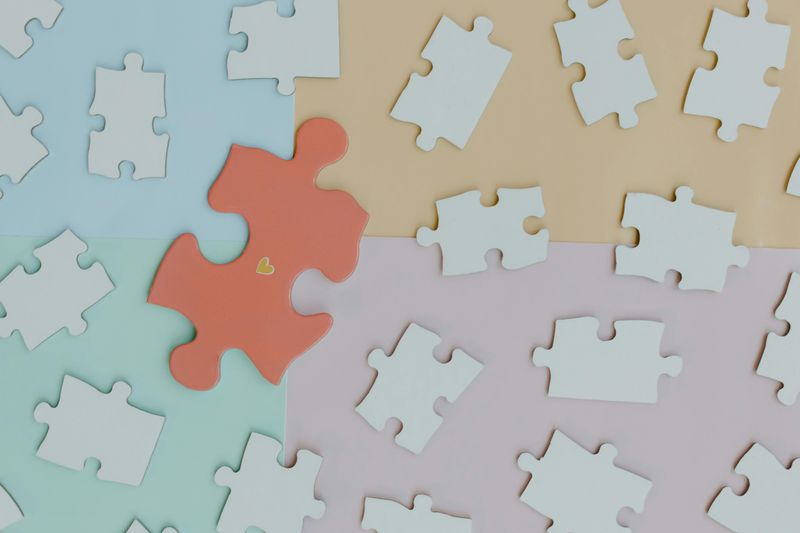Our daily lives are shaped more by our mindset than we realize. Small mental adjustments can create ripple effects that dramatically improve how we experience each day. These tiny shifts don’t require massive lifestyle overhauls or complicated systems – just simple changes in how we think about everyday moments. Ready to discover how minor mental tweaks can make major differences in your life?
1. Replace “I have to” with “I get to”
Flipping this simple phrase transforms obligations into opportunities. When you catch yourself thinking “I have to go to work,” try “I get to go to work” instead. This subtle shift highlights the privilege of having a job when many don’t. Your brain responds differently to these phrases. “Have to” triggers resistance while “get to” cultivates gratitude. Morning commute feeling tedious? Remember you get to have reliable transportation. Practice this switch with daily tasks like cooking dinner or exercising. Soon you’ll notice more appreciation for ordinary aspects of life that actually represent abundance rather than burden.
2. Embrace the Five-Minute Rule
Procrastination melts away when you commit to just five minutes of a dreaded task. Most resistance comes from starting, not continuing. Tell yourself you’ll fold laundry for five minutes, then decide if you want to stop. The magic happens when momentum takes over. Our brains crave completion once we begin something. That brief commitment often extends naturally as you get absorbed in the task. Apply this to exercise, cleaning, work projects, or studying. Five minutes is small enough not to feel threatening yet substantial enough to create progress. The key is keeping the initial promise to yourself without expectations beyond those first few minutes.
3. View Problems as Puzzles
Challenges feel different when framed as interesting puzzles waiting to be solved. Notice how your energy shifts from dread to curiosity with this mental reframing. Rather than thinking “I’m stuck,” try “What’s the solution to this puzzle?” Kids naturally approach difficulties with playful problem-solving energy. They don’t label themselves as failures when building blocks topple; they simply try a different approach. This mindset reduces anxiety and activates your creative thinking. Next time you face a challenge at work or home, imagine yourself as a detective piecing together clues. The emotional weight lifts when you separate problems from your identity and treat them as engaging brain games.
4. Practice Single-Tasking
Multitasking feels productive but actually scatters your attention and energy. When eating lunch, just eat lunch. When talking with someone, just have that conversation. This presence transforms ordinary moments into richer experiences. Your brain wasn’t designed to juggle multiple focus-intensive tasks. Each switch between activities costs mental energy and reduces quality. Notice how food tastes better when you’re not scrolling through your phone while eating. Start small by choosing one daily activity for single-tasking practice. Maybe it’s your morning coffee ritual or evening walk. Gradually expand this focused attention to more parts of your day and watch how your experience of time shifts.
5. Adopt a Beginner’s Mind
Approaching familiar situations as if experiencing them for the first time unlocks fresh insights. This Japanese concept called “shoshin” removes preconceptions that limit your perception. Even experts benefit from temporarily setting aside their knowledge. Wonder transforms the mundane. Your daily walk becomes an adventure when you notice details typically filtered out by your brain’s efficiency systems. Relationships deepen when you listen without assuming you know what someone will say. Try asking yourself, “What would I notice if I were seeing this for the first time?” This works for your neighborhood, your job tasks, and even people you’ve known for years. Curiosity creates connection where routine creates distance.
6. Turn Waiting into Meditation
Waiting moments pepper our days – lines at stores, traffic lights, appointment delays. Instead of reaching for your phone, use these pauses as mini-meditation opportunities. Take three deep breaths and notice your surroundings. These brief moments add up. Five minutes of waiting converted to mindfulness several times daily creates a cumulative calming effect. Your blood pressure lowers and your nervous system regulates itself during these micro-breaks. The practice builds patience naturally. What once felt like wasted time becomes valuable reset space. Soon you might find yourself welcoming these pauses rather than resenting them – a complete reversal from the typical modern response to waiting.
7. Collect Small Wins
Major accomplishments are built from tiny victories worth celebrating. Your brain responds to acknowledgment of progress with motivation-boosting chemicals. Making your bed, drinking enough water, or sending that email all count as wins. Keep a small wins journal or mental list. This trains your attention toward progress rather than shortcomings. Even on difficult days, you’ll find evidence of forward movement when you’re looking for it. The size of the win doesn’t matter – consistency does. Recognizing three small victories daily creates a powerful psychological foundation for bigger achievements. This habit counteracts negativity bias, our natural tendency to focus more on problems than progress.
8. Ask “What’s Good About This?”
Training your brain to find benefits in challenging situations builds resilience. When facing disappointment or frustration, pause and genuinely ask: “What might be good about this?” The answer often surprises you. This isn’t toxic positivity or denying problems. It’s about finding useful perspectives alongside acknowledging difficulties. That canceled plan might provide needed rest. That work critique might prevent bigger mistakes later. Make this question automatic through repetition. Start with minor annoyances before applying it to bigger challenges. The skill strengthens with practice, eventually becoming second nature during stressful moments when you need it most. Your recovery time from setbacks gradually shortens.
9. Reframe “Failure” as Feedback
Mistakes and setbacks contain valuable data, not evidence of personal inadequacy. When something doesn’t work out, ask “What can I learn from this?” instead of “Why did I fail?” This subtle shift transforms experiences from judgments into growth opportunities. Scientists use this mindset naturally. Each experiment that doesn’t yield expected results provides information for the next attempt. Nobody would discover anything if researchers gave up after initial unsuccessful trials. Apply this to cooking attempts, work projects, or relationship misunderstandings. Separating outcomes from your identity creates emotional safety for risk-taking. The word “failure” implies an endpoint, while “feedback” suggests a continuing process of refinement and improvement.
10. Practice Proactive Gratitude
Most gratitude practices focus on the past, but anticipatory appreciation creates a powerful shift. Before activities, consciously think about aspects you might appreciate. Before a meeting, consider “I’m grateful this team has different perspectives.” This pre-framing sets your attention filter to notice positive elements. Your brain literally becomes more receptive to good aspects of experiences when primed this way. The shower feels more refreshing when you’ve thought about appreciating warm water beforehand. Try this before mundane activities like commuting, grocery shopping, or household chores. Proactive gratitude transforms routine tasks by highlighting their value in advance rather than taking them for granted. This creates a feedback loop of increased enjoyment.










